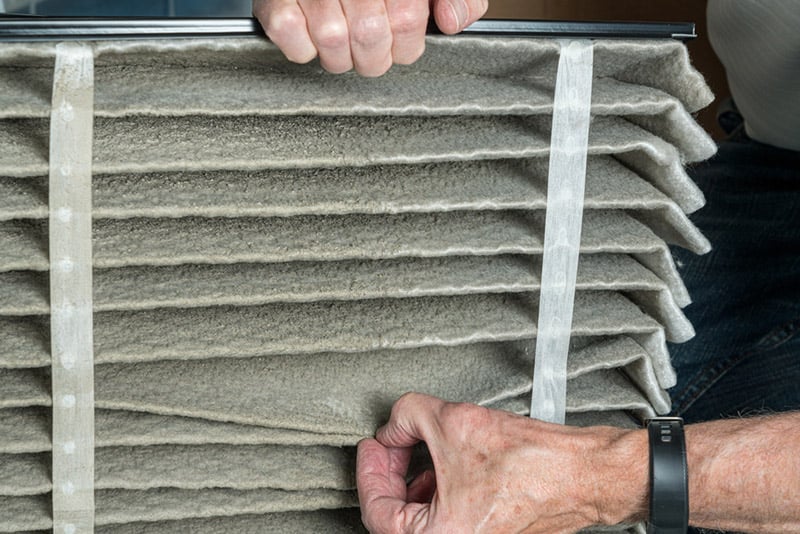HVAC stands for heating, ventilation and air conditioning. The term refers to the various systems used to heat and cool air by circulating it between interior and exterior areas of buildings. While historically open windows were used to let air out, some buildings (such as shopping malls) do not have access to fresh air readily available, and tend to make use of these systems.

How do HVAC Filters Work?
Typically there are a number of different components to a HVAC system – but the filter is responsible for cleaning and filtering indoor air in order to keep humidity levels at a comfortable level.
In addition to heating and cooling spaces, a HVAC filter is also capable of improving air quality through ventilation via a mechanical system to circulate air in and out. They are also capable of removing particles such as pet dander, pollen and dust, making them a good choice for people with health issues.
What Different Types of HVAC Filters are There?
There are four main types of HVAC filter available on the market.
- Reusable air filters – These can be washed and reused, making them the most eco-friendly option, although they tend to have a low MERV (minimum efficiency reporting value) rating, which indicates lower filtration efficiency compared to other types.
- HEPA filters – These often come recommended as the gold standard of filtration, capable of capturing very tiny particles. They can be difficult to install,. though worth the effort.
- Flat-paneled fiberglass filters – These have the lowest MERV rating. While not ideal for health issues such as asthma, they offer a cheaper option where minimal filtering is required.
- Pleated media filters – This type of filter is designed to have an increased surface area to attract spores and dander. While filtration efficiency is quite low in this style of fitler, they offer reduced airflow resistance with less noise.
Do I Need a HVAC Filter for my Home?
According to Environmental Protection Agency data, people tend to spend approximately 90% of their time indoors, making air quality a priority, especially for those with health conditions.
What Do the Ratings Systems Mean?
There are several ratings systems used to measure indoor air quality, MERV being the most commonly-used. This system was developed by the American Society of Heating, Refrigerating and Air-Conditioning Engineers and rates filtration systems according to how well they can filter out particles from the air.
What Should I Consider Before Purchasing a HVAC Filter?
Before purchasing a HVAC filter, find out what the specific health needs of the people in your home are. Filters with a higher filtration rating are generally best for people with health issues related to inhalation of air-borne particles.
You will also need to consider the size of your property in addition to ventilation openings – as this will help determine the size and type of filter required. When doing this, it is advisable to contact a HVAC technician, who will be able to advise on the best type of filter for your home.
